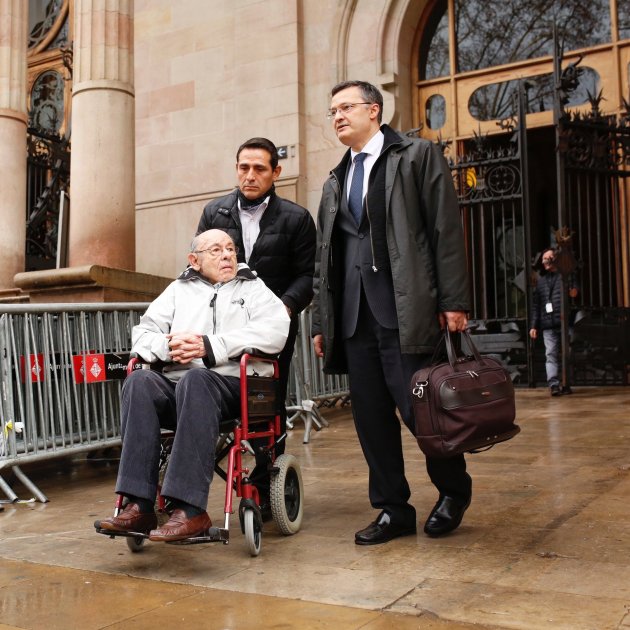Public prosecutors are asking for four years in prison for the former president of Barcelona's Palau de la Música, Fèlix Millet, whom they accuse of misuse of public funds by hiding assets which had been placed under embargo to compensate for the wealth he stole from the major Catalan cultural entity and celebrated concert hall whose organization he headed. Specifically, the prosecutor accuses him of having hidden five pieces with a value of 3,395 euros that were at his home in the Barcelona metropolitan locality of L'Ametlla del Vallès. In 2018, the Barcelona Audience sentenced Millet to nine years and eight months in prison for having stolen 23.8 million euros from the Palau, along with his right-hand man Jordi Montull, who was sentenced to seven years and six months in prison. Recently, the 86-year-old Fèlix Millet, who has been serving his sentence since the summer of 2020, was transferred from the Terrassa Penitentiary Hospital to a private residence. On humanitarian grounds, the Catalan justice department granted him an open prison regime, removing any obligation to sleep in prison again, due to his poor health. The prosecutor have filed an appeal against this regime and the penitentiary surveillance judge has to resolve it.
Millet is also facing a second criminal procedure for allegedly concealing assets from the trial court, the Barcelona Audience, which convicted him and is responsible for distributing the assets and income that were seized from him. So far, 9 million euros have been recovered. The Barcelona judge investigating this second case accuses the former Palau de la Música president of having hidden income from property rentals, for which his daughters Laila and Clara are also being investigated. The institution of the Palau de la Música, through lawyers Marc Molins and Laura Parés, was alerted by the Spanish treasury about these concealments.
Ivory figures missing
In the case of the L'Ametlla del Vallès estate, the anti-corruption prosecutor specifies that Millet was himself appointed as responsible for the assets placed under seizure order in his home, in a search in July 2012, and he was warned of the obligations he had to keep them and the prohibition of disposing of them. There are about fifty pieces and the prosecutor maintains that Millet "breached" this obligation, as was discovered during a judicial procedure carried out on March 3rd, 2021. Specifically, 10 ivory animal figures were discovered to be missing; three African figurines, one of stone and two of wood; an ivory figure; two mallets and two ivory tusks. These pieces were appraised as having a total value of 3,395 euros.
Montull, on trial
Meanwhile, Millet's former colleague Jordi Montull, who is serving a sentence in the Brians 2 prison, after the judge revoked his open prison sentence, also has two procedures open for having concealed assets that were confiscated to reimburse the Palau de la Música. Montull and his wife, Mercedes Mir, will be tried in October for having concealed the sums of rent they received from a house in Masnou, also seized in the Palau case. The public prosecutors demand two years in prison for each of them for having concealed 31,500 euros of this rent during 2020 and the first nine months of 2021.
In the second case against the Montulls, the judge of Barcelona court number 12 - the same court that is investigating Millet's hidden rents - is trying to find out if the pair hid the rents received from two properties they own in the coastal town of Masnou, one of them rented to their daughter, Gemma Montull, sentenced to four years in prison for the looting of the Palau but whose entry into prison was suspended. For her part, Gemma Montull is accused of renting a property in nearby Teià to her son. The rents paid by the family members were around 500 euros a month, below the market rate, and the Montulls told the court that they used the money to pay for works and taxes on the properties. Following the complaints, rental of the properties has been suspended.
Political corruption
The so-called Cas Palau, which first hit the headlines in 2009 when police raided the offices of the famous modernista music palace, had major political implications: Convergència Democràtica (CDC), the centre-right party which had co-governed Catalonia for 23 years, was a major beneficiary of the corruption, with former treasurer Daniel Osàcar also being jailed for 4 years and the party being required to pay back over 6.7 milllion euros. The case was one of the key factors which led to the dissolution of CDC in 2016.
